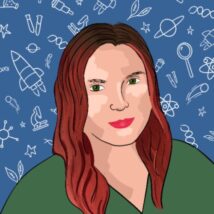
Sarah Zielinski
Editor, Print at Science News Explores
Sarah Zielinski is the Editor, Print for Science News Explores. A former editor at Smithsonian magazine, she has been published in Scientific American, Discover, National Geographic News, Science and Slate. She shared a Gold Award in the Children's Science News category of the 2022 AAAS Kavli Science Journalism Awards for a trio of Wild Things comics and has also received two DCSWA Science News Brief Awards and an honorable mention. She has a B.A. in biological sciences from Cornell University and an M.A. in journalism through New York University’s Science, Health and Environmental Reporting Program. She has three cats: Oscar, Saffir and Alani.

All Stories by Sarah Zielinski
-
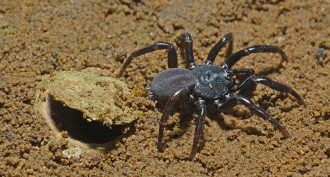 Animals
AnimalsTo become Australians, these spiders crossed an ocean
The ancestors of a species of trapdoor spider must have survived a journey from Africa, a new genetic analysis finds.
-
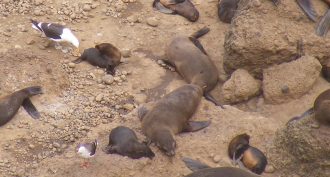 Animals
AnimalsPoop-eating gulls can be pain in the butt for seal pups
The birds can harm baby fur seals as they try to dine on fresh parasites in the pups’ feces.
-
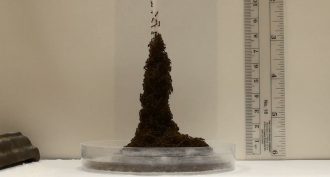 Animals
AnimalsThree simple rules guide fire ants in building towers
Fire ants build towers of ants to protect themselves during a flood. New research reveals the simple rules that guide how they do this, no foreman needed.
-
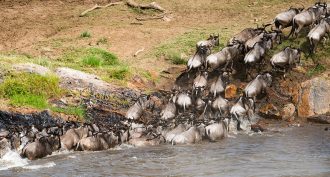 Animals
AnimalsWildebeest drownings feed a river ecosystem for years
Hundreds or thousands of wildebeests can drown at a time in the Mara River. Those carcasses, however, will feed a succession of other animals.
-
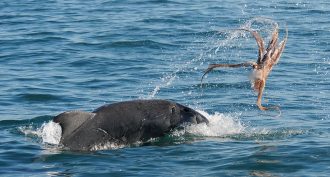 Animals
AnimalsToss and slap — how dolphins disarm a dangerous meal
Octopus can be a deadly meal, especially if you don’t have hands to cut it up. But dolphins in Australia have figured out how to eat octopus without choking to death.
-
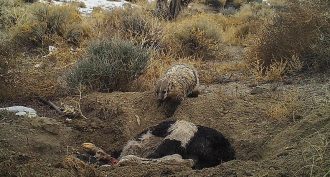 Animals
AnimalsIndustrious badger caught burying an entire cow
Badgers are known to bury small animals. That allows them to save a meal for future dining. Now researchers have caught them caching something much bigger: young cows.
-
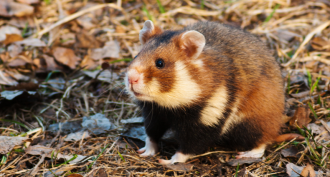 Animals
AnimalsWild hamsters raised on corn eat their young alive
European hamsters raised in the lab turn into crazy cannibals when fed a diet rich in corn, new data show. The problem may trace to a shortage of a key vitamin.
-

The most popular stories of 2016
Our readers really like the disgusting side of things! From zombies to rot to cockroach milk, here’s what you were reading in 2016.
-
 Science & Society
Science & SocietyAdults can sabotage a student’s path in science or math
Parents and teachers can unwittingly pass on messages about science and math to kids, who then think that STEM is not for them.
-
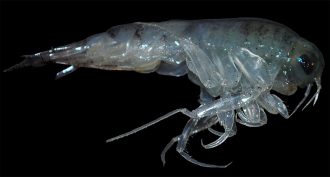 Ecosystems
EcosystemsAlgae embedded in sea ice drive the Arctic food web
Scientists traced where zooplankton in the Arctic get their energy from. Many open ocean species rely on algae found in sea ice, which is disappearing.
-
 Health & Medicine
Health & MedicineEven some Olympic athletes cheat with drugs
Some athletes have been using banned drugs or other methods to boost their performance. But scientists are working on new ways to catch them.
-
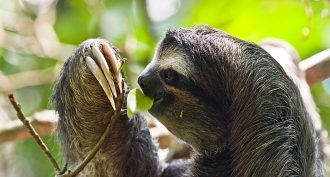 Animals
AnimalsThis mammal has the world’s slowest metabolism
A sloth species manages to exist with a super-slow metabolism by moving little and using its environment for heating and cooling its body.